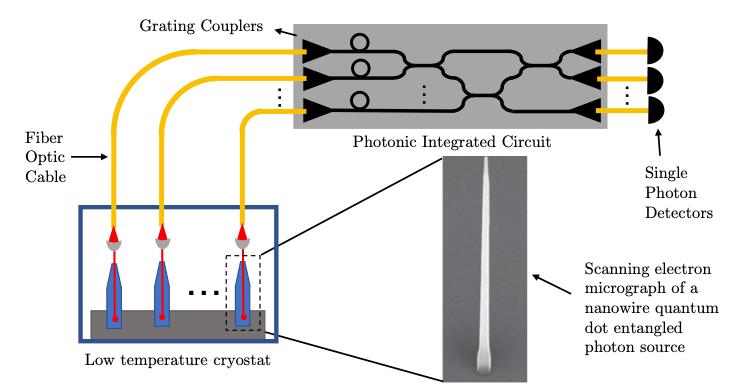Summary
A major roadblock to the broader adoption of quantum technologies is the long learning curve associated with their seemingly abstract concepts. This often renders quantum technologies inaccessible to most audiences, especially through explanations using conventional scientific language. In this project, we develop novel methods of interactive digital storytelling – augmented and extended reality (AR/XR) environments – to make quantum technologies more transparent and accessible to a variety of audiences, including the general public, educators, and key decision makers of technology-based funding, policies, and industries. One outcome of this project will be an open-source AR/XR reality environment through which users can visually, spatially, and physically explore quantum phenomena and applications. Through simple interactive representations and open-access resources, our aim is to advance Canada’s quantum research to the forefront through nearly global online outreach to prospective knowledge users.
Related Content

Photonic Quantum Processor
Photonic quantum processors based on integrated quantum photonic circuits require entangled photon pairs to perform quantum computations. However, current state-of-the-art technologies utilize probabilistic entangled photon sources with limited pair-extraction efficiencies, negatively affecting the computation speed. This project aims to boost the speed of on-chip quantum operations by using bright, on-demand entangled photon sources with an […]
April 24, 2023

Extensible Technology for a Medium-Scale Superconducting Quantum Processor
Summary Superconducting quantum bits, or qubits, use circuits made from superconducting materials to harness quantum mechanical states. These devices contain many atoms, but can behave as simple, controllable qubits. We are building technologies for the control and measurement of superconducting qubits to enable the first demonstration of an extensible, medium-scale quantum processor. Our approach […]
November 28, 2016

Quantum Dynamics of Cavity Interactions with Spin Ensembles
Summary High quality factor cavities can be powerful control elements for ensembles of spins, enabling unitary control as well as on demand cooling. They can also be used to couple two otherwise non-interacting ensembles. The goal of the project is to explore the physics and engineering of such systems both theoretically and experimentally. The laboratory contains a […]
September 7, 2016

Spin Generation and High-Frequency Detection via the Quantum Nonlinear Anomalous Hall Effect in Weyl Semimetals
In magnetic conductors, the passage of current yields an electric field in the transverse direction even without an external magnetic field – this is known as the anomalous Hall effect (AHE). This effect can act as a convenient probe of spin ordering, magnetic textures, spin-orbit coupling, and band topology in solids, and can be further […]
April 19, 2023

